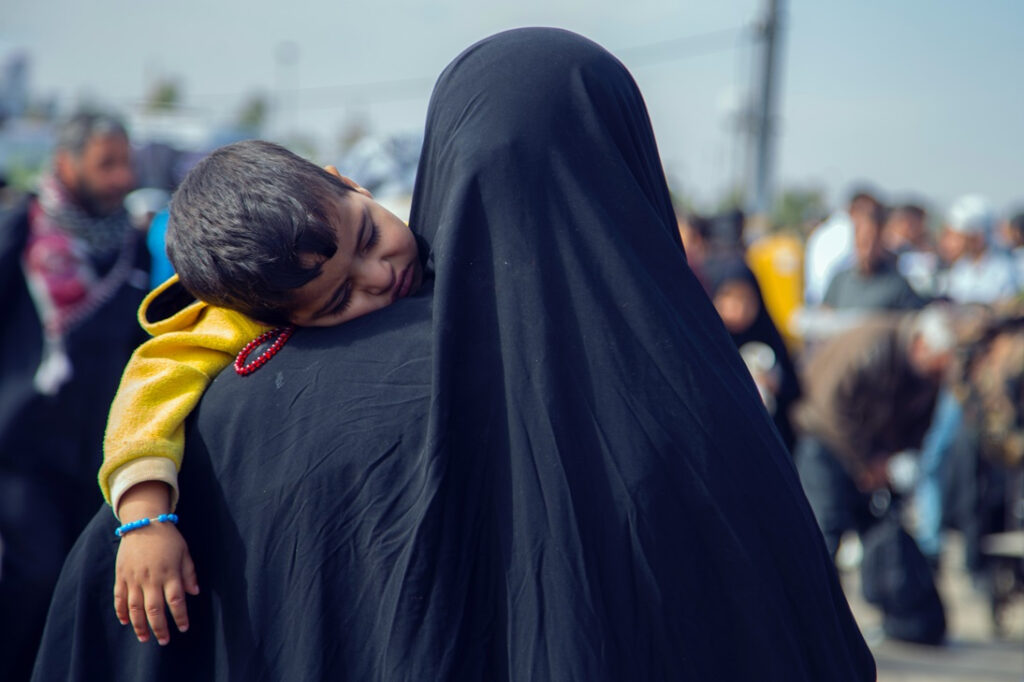A 2020 study published by the Substance Abuse and Mental Health Services Administration found one in five American adults experiences mental illness each year. In 2021, national leaders in the pediatric medical community declared a “national state of emergency in children’s mental health.” And lest we believe this is an issue limited to America, the World Health Organization’s numbers are similar, with reports of approximately one in five children and adolescents suffering from mental illness globally.
One in five adults. One in five children. In our families, neighborhoods, schools, pews—and in our sending organizations.
Mental illness doesn’t discriminate, and it affects many missionaries globally. Sadly, many of these same missionaries suffer silently, and their mental concerns remain untreated. Why is this, and what can we do about it? While I can’t address every situation, I want to list four common reasons mental illness in missionaries goes unaddressed, then offer suggestions for how to serve suffering missionaries.
1. Obligation to Supporters
The reality is that stories of sacrifice and surrender sell. They soften hearts, stir empathy, and open wallets. I’ve spoken to countless missionaries who feel the pressure to “smile, stay quiet, and look busy.”
I challenge you to find one missionary update email that doesn’t reference their busyness. And I challenge you to find a church, organization, or supporter that doesn’t either overtly or subtly encourage this. We all naturally want bang for our buck. We want the exotic stories. We want proof our missions dollars are going to good use. And missionaries have learned to dutifully play along, with smiles on their faces and upbeat newsletters detailing ministry wins.
As a Christian culture, we’ve placed missionaries on the highest pedestal. Unfortunately, pedestals are an awfully precarious place for those who feel a bit wobbly. But perhaps more tragic than a struggling missionary waving a white flag from the top of the pedestal is one who silently stands in mental anguish, terrified of being the next fallen hero.
2. Fear of Career Implications
Picture this. A 36-year-old father of three has been on the field for 10 years. He and his wife moved overseas as newlyweds just months after graduating from seminary. His life plan and career trajectory have always been missions. But now, he’s suffering from crippling anxiety. His family is falling apart. Yet his greatest fear is that word will get out to their organization. His boss will catch wind of it, and their family will be deemed unfit to stay overseas. He’ll be jobless and effectively homeless. So he stays quiet and suffers silently, undiagnosed and untreated.
When organizations send missionaries across the globe to resource-poor locations, there are obvious risks. To mitigate these risks and to protect missionaries, nationals, and organizations alike, extensive screening and reporting processes are put in place to ensure the mental and physical health of those they send. This is necessary and good. However, when missionaries are expected to go straight to their employers with health concerns, and when the help received is coming primarily from the ones in charge, a culture of distrust, fear, and secrecy can ensue.
Even when set with the best intentions, the structures to protect missionaries might inadvertently cause harm when mental illness comes knocking, especially if missionaries fear the potential loss of their careers, homes, and ministry dreams.
3. Limited Access to Resources
When mental health becomes a concern, the best practice for care often involves therapy. At times, medication. Always, self-care and community. A move overseas, however, can strip away access to each of these.
Even in these days of widespread access to virtual therapy, factors like legal barriers, unstable internet, and financial burdens can leave it out of reach. Meanwhile, the availability of medications is a wild card in many countries. Avenues and resources for self-care are limited in some settings, and advice to “enjoy nature, get exercise, and spend time with friends” may not be possible in a high-security urban setting. And let’s not forget our many missionaries in unreached locations without a local church or other believers to come alongside them in seasons of suffering.
Slowly, as doors close and resources remain out of reach, mental illness can feel exponentially more daunting for the already stretched missionary.
4. Cumulative Stress
There’s been plenty penned on the experience of culture shock. When the fresh, starry-eyed missionary hits the field, we know to expect it. What’s discussed less often is the cumulative effect of near-constant exposure to cultural stress and unpredictable conditions.
When our family first moved overseas, my husband and I referred to this as the “drippy faucet.” Our life stressors never came in a flood. Rather, we saw how the constant drip of another cultural snafu, another inconvenient power outage, and another poorly timed bout with parasites could slowly wear on us.
Despite these challenges, we simultaneously felt the cognitive dissonance of living a privileged expat life in the middle of one of the poorest countries in the world. Surrounded by grief and death, we felt guilty for feeling stress in the first place. Because we didn’t have it as bad as others experiencing those “big T” traumas.
How We Can Help
Whether missionaries are facing the steady drip of cultural stress or the all-consuming waves of significant trauma, we shouldn’t be surprised if they struggle with mental health. Of course, missionaries should be prepared to suffer. But that doesn’t mean they should suffer silently. And it doesn’t excuse our lack of awareness or concern or empathy.
As supporters, we should remember the humanity of the missionary behind the prayer card. We should ask pointed questions, such as: “How’s your walk with Christ?” “What’s not making the newsletter?” “What’s felt challenging lately?” “Are you supported well?” And we shouldn’t delay in nudging him or her toward help. We can encourage rest, give money for vacations, and normalize a well-rounded ministry life.
As sending churches, we should remember our jobs don’t end when missionaries are commissioned. We should keep caring and continue shepherding, even if it means flying across the globe to sit with our people in their greatest pain. Even if it means providing housing when they unexpectedly return stateside.
As sending organizations and churches, we should broaden access to independent counseling services. We can provide avenues for support that don’t come from supervisors. We can offer names of vetted counselors and subsidize the often prohibitive costs. We shouldn’t only do this in response to problems; instead, we can promote preventative care before the crisis comes.
As caring brothers and sisters, we can demystify mental health by talking openly and frequently about it. Unwavering support will push us forward; hushed whispers never will. The one in five are worth it. Our missionaries are worth it.
Editor’s Note: This article was originally published on The Gospel Coalition on April 19, 2023. Used with permission




